The Western Genre in Film and TV (Definition and Examples)
Let's take a ride into the wild wild west.
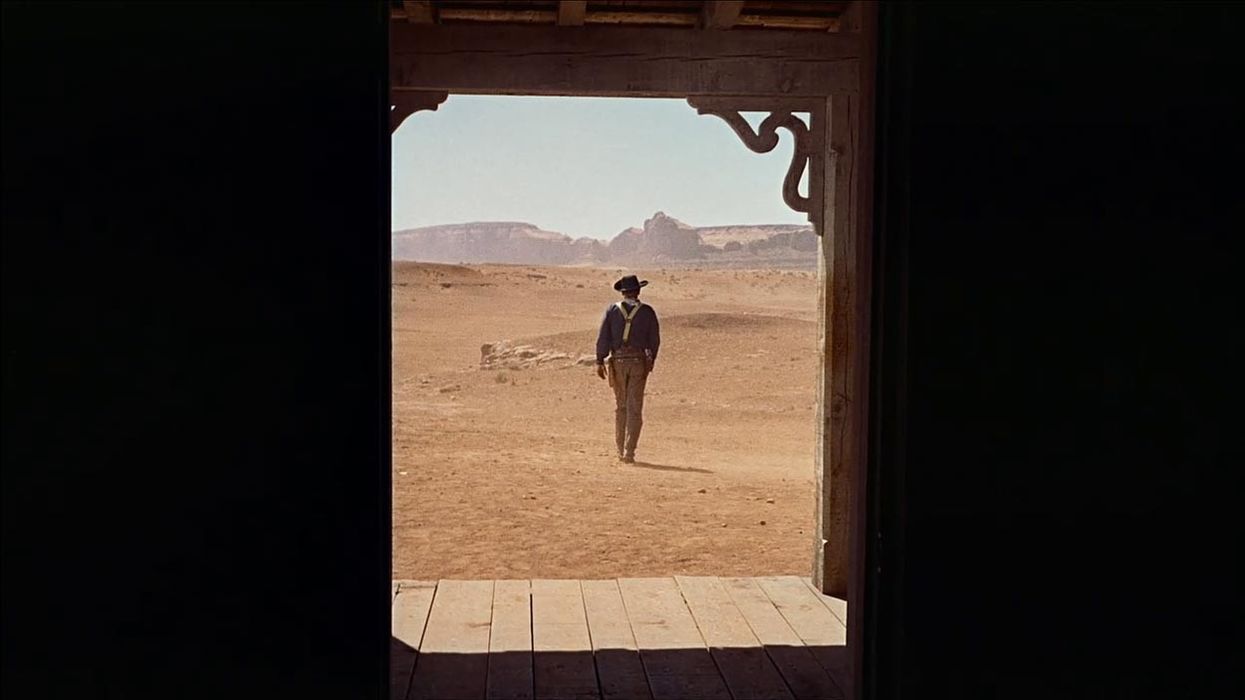
The Western genre has been a staple of American entertainment for decades, captivating audiences with its portrayal of the Wild West in film and television.
From classic films such as The Searchers and The Good, the Bad and the Ugly to iconic TV shows like Gunsmoke and Bonanza, the Western genre has captured the imagination of generations. With its rugged landscapes, rough-and-tumble characters, and themes of justice and redemption, the Western genre has become a symbol of the American spirit, reflecting the struggles and ideals of the frontier era.
In this article, we will look at the Western genre in film and TV, exploring its history, key tropes and themes, and notable examples that have left a lasting impact on the genre and popular culture.
Let's ride.
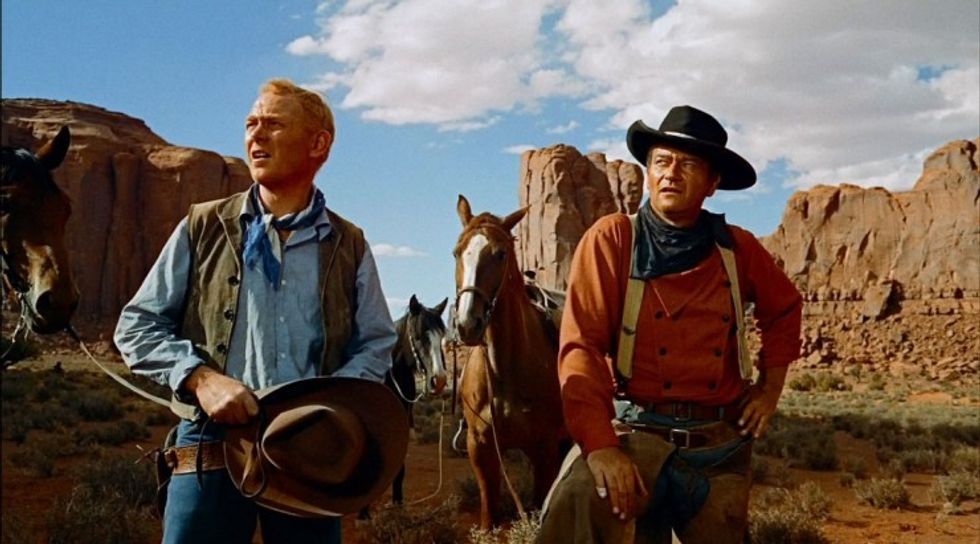
The Western Genre Definition
The Western genre in film and TV refers to a category of stories set in the American Old West, typically in the late 19th century, which portray the frontier life, the clash between law and order and the lawless, and the individualism of the characters.
Westerns are often characterized by their iconic visual and narrative elements, including cowboys, gunslingers, saloons, horseback riding, shootouts, and the vast, rugged landscapes of the American West. The genre has its roots in the dime novels of the late 19th century and was popularized in the early 20th century through silent films and TV.
Westerns often deal with themes such as morality, justice, revenge, and the struggle for survival in a harsh and unforgiving environment. They can be gritty and realistic or romanticized and idealized, depending on the era in which they were made and the perspective of the filmmakers.
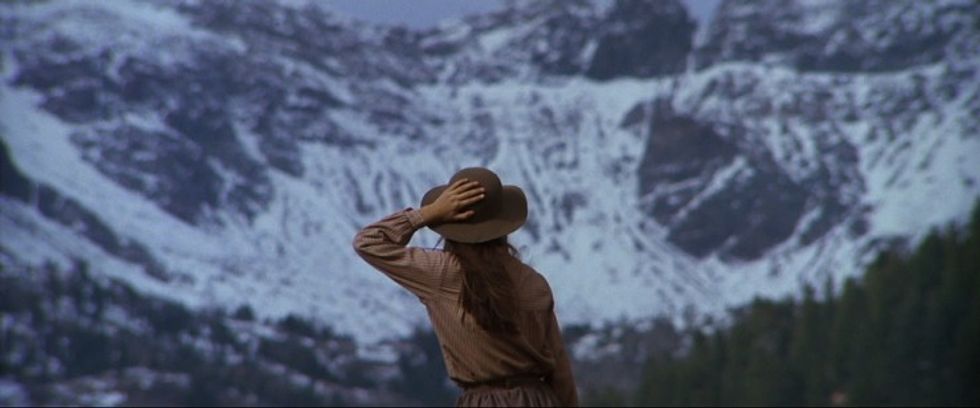
What Makes the Western Genre Interesting?
Every time a new Western comes out, I find myself, along with others, flocking to see them. They have this inherent association with the American Dream. There are several reasons why the Western genre is interesting and enduring.
The most important is the mythic quality. The Western genre has a mythic quality to it that makes it feel larger than life. The American West was a vast, untamed wilderness where people had to rely on their wits, courage, and strength to survive. This setting and the characters that inhabit it have become symbols of the American spirit of individualism, resilience, and self-reliance.
I also think Westerns stick around because they are timeless.
The themes explored in Westerns, such as justice, morality, revenge, and redemption, are timeless and universal. They resonate with audiences of all ages and backgrounds, making the genre relatable and relevant even today.
They also deliver memorable characters. Westerns are known for their memorable characters, from rugged heroes to ruthless villains. These characters have become cultural icons, inspiring countless imitations and adaptations in other media.
Of course, it's not all storytelling. Some of it is cinematography and direction.
Westerns have rich visual and sensory details. The American West was already a visually and sensory-rich setting, full of dramatic landscapes, distinctive clothing, and unique cultural practices. These details can be used to create a vivid and immersive world for the audience.
Finally, there is always interest in the exploration of history.
The Western genre is set in a specific time and place, offering a unique opportunity to explore and learn about the history, culture, and conflicts of the American West.
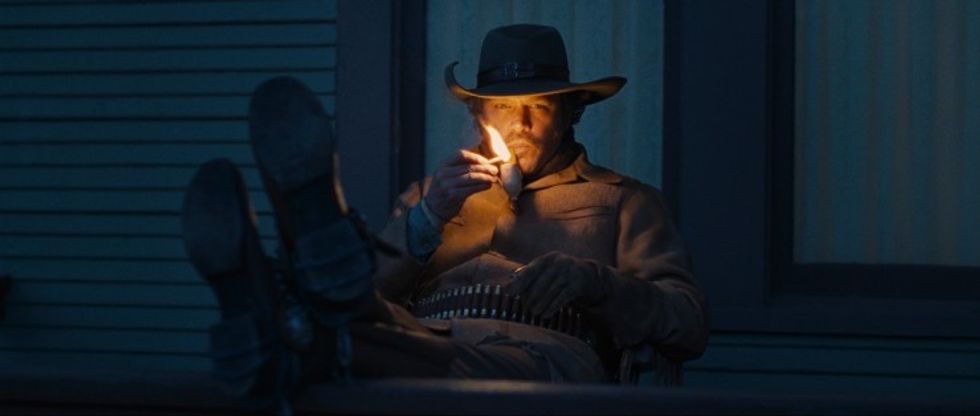
The Western Genre Tropes
There are certain things to look for that might be in the Western you're watching. The Western genre in film and TV is often characterized by its tropes, which are recurring elements or motifs that are commonly associated with the genre.
What to look for:
- Cowboys and Gunslingers: These are often the iconic characters of the Western genre, typically portrayed as rugged, tough, and independent individuals who embody the values of the American frontier.
- The Frontier Setting: The Western genre is typically set in the American West during the late 19th century, where the landscape is often portrayed as rugged and unforgiving.
- Saloons and Gambling: The saloon is a staple of the Western genre, often serving as a gathering place for cowboys and gunslingers, where they drink, gamble, and sometimes get into fights.
- Horseback Riding: Horses are a common mode of transportation in Westerns, and horseback riding scenes are often used to convey the freedom and independence of the characters.
- Shootouts and Showdowns: Gunfights and duels are common in Westerns, often serving as the climax of the story and providing a test of the main character's strength and skill.
- Lawmen and Outlaws: The conflict between law and order and the lawless is a common theme in Westerns, often featuring sheriffs, marshals, and other lawmen trying to bring justice to the frontier.
- Revenge: Revenge is a common theme in Westerns, with characters seeking vengeance for past wrongs or injustices.
- Honor and Morality: The Western genre often explores themes of honor and morality, with characters grappling with questions of right and wrong in a lawless and chaotic environment.
- The Lone Hero: The lone hero is a common archetype in Westerns, often portrayed as a solitary figure who stands up for justice and fights for what is right, even in the face of great danger.
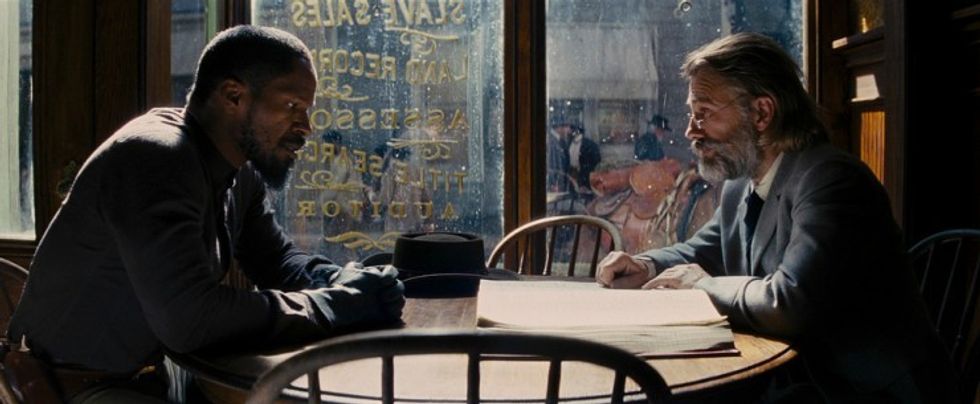
The Western Genre Examples in Film
There are many examples of Western films that have become iconic and have left a lasting impact on popular culture. Here are a few notable examples:
- The Searchers (1956): Directed by John Ford and starring John Wayne, this movie is considered one of the greatest Westerns ever made. The film follows a Civil War veteran who sets out to rescue his niece from a Comanche tribe.
- The Good, the Bad and the Ugly (1966): Directed by Sergio Leone and starring Clint Eastwood, Lee Van Cleef, and Eli Wallach, this film is a classic spaghetti Western. It tells the story of three gunslingers who are in search of a buried treasure.
- Unforgiven (1992): Directed by and starring Clint Eastwood, this movie is a revisionist Western that explores the darker side of the genre. Eastwood plays a retired gunslinger who takes on one last job.
- High Noon (1952): Starring Gary Cooper and Grace Kelly, this movie is a classic Western that tells the story of a marshal who must face a gang of outlaws on his own.
- The Magnificent Seven (1960): Directed by John Sturges and starring Yul Brynner, Steve McQueen, and Charles Bronson, this movie is a remake of the Japanese film Seven Samurai. The film follows a group of gunslingers who are hired to protect a Mexican village from bandits.
- True Grit(2010): Directed by the Coen Brothers and starring Jeff Bridges, Matt Damon, and Hailee Steinfeld, this movie is a remake of the 1969 film of the same name. The film follows a young girl who hires a U.S. Marshal to help her track down her father's killer.
- Django Unchained(2012): Directed by Quentin Tarantino and starring Jamie Foxx, Christoph Waltz, and Leonardo DiCaprio, this movie is a revisionist Western that explores the themes of slavery and racism. The film follows a freed slave who teams up with a German bounty hunter to rescue his wife from a plantation owner.
These films represent a wide range of styles and themes within the Western genre and have had a significant impact on the genre and popular culture as a whole.
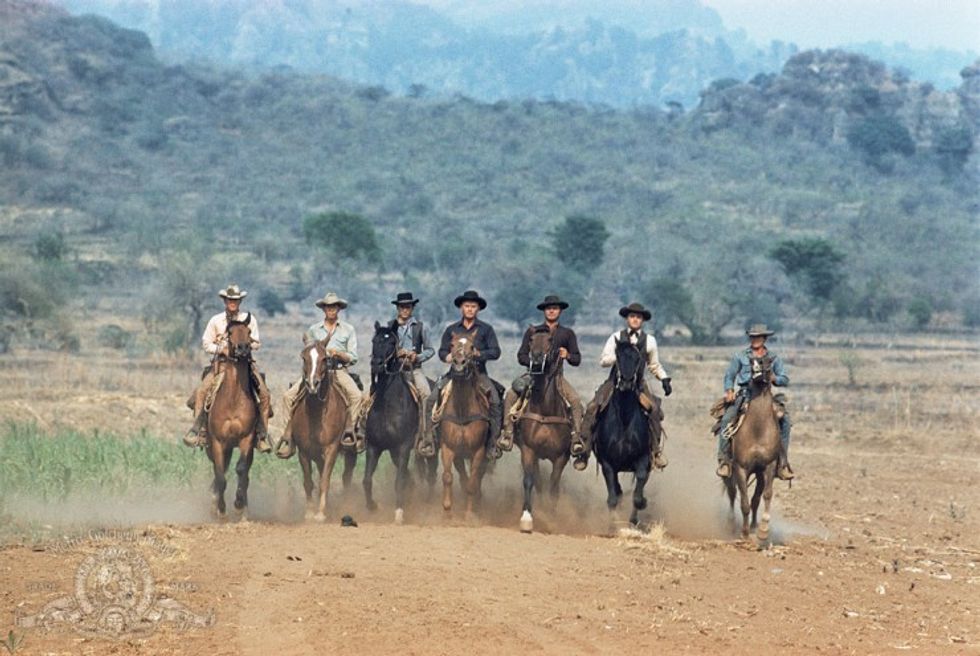
The Western Genre Examples in TV
The Western genre has also been popular on television, with several iconic shows that have become fan favorites. Here are a few examples:
- Gunsmoke (1955-1975): This long-running series is one of the most iconic Westerns on television. It follows the adventures of Marshal Matt Dillon and his deputies as they keep the peace in Dodge City, Kansas.
- Bonanza (1959-1973): Set on the Ponderosa Ranch in Nevada, this show is another classic Western series that was popular in the 1960s. The show follows the adventures of the Cartwright family and their struggles with outlaws, rustlers, and other threats to their ranch.
- The Lone Ranger(1949-1957): This popular series was based on the radio show of the same name and follows the adventures of the Lone Ranger and his faithful companion Tonto as they fight for justice in the Wild West.
- Deadwood (2004-2006): This critically acclaimed series takes a gritty and realistic look at life in a mining camp in South Dakota in the 1870s. The show features an ensemble cast and explores themes of lawlessness, corruption, and the struggle for power in a lawless environment.
- Hell on Wheels(2011-2016): Set during the construction of the first transcontinental railroad, this show follows a former Confederate soldier as he works on the railroad and seeks revenge against those who killed his family.
- Westworld (2016-2022): This science fiction series is set in a Wild West theme park populated by lifelike androids. The show explores themes of artificial intelligence, free will, and the nature of consciousness.
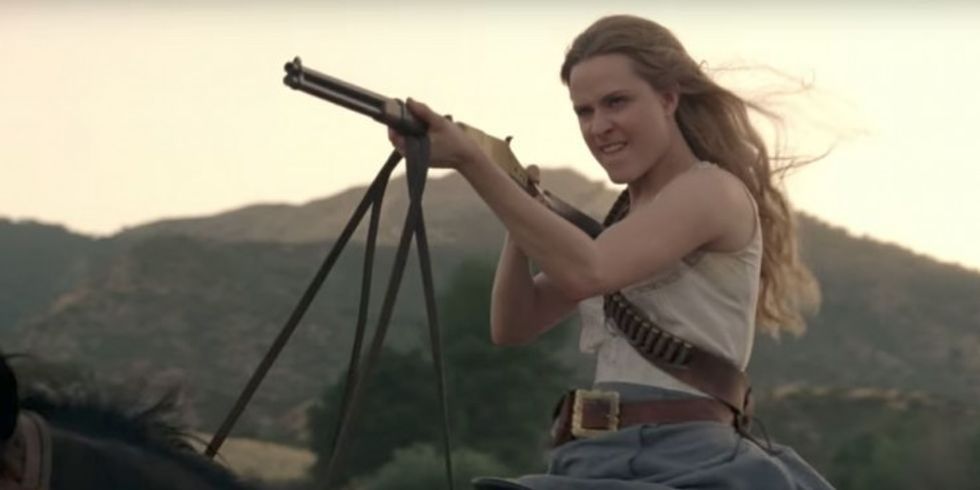
Tips for Writing a Western Genre Screenplay for Film or TV
As No Film School's resident screenwriter, I feel like I have to help you brainstorm the screenplays and TV pilots you're looking to write. Therefore, I compiled some tips you can use to put into your stories. Personalize them and make them your own.
- Research the time period: The American West in the late 19th century was a unique time and place with its own culture, customs, and conflicts. It's important to do your research and understand the historical context to accurately portray the era and create a believable world for your characters.
- Develop strong characters: The Western genre is often characterized by its iconic and larger-than-life characters, from rugged heroes to ruthless villains. It's important to create characters with distinct personalities, motivations, and flaws that will engage the audience and drive the story forward.
- Include themes of justice and morality: Many Western stories revolve around themes of justice, morality, and the struggle between good and evil. Incorporating these themes into your story can add depth and resonance to your characters and plot.
- Create a compelling plot: Whether you're writing a film or TV show, a strong plot is essential to keeping the audience engaged. Develop a clear narrative arc with high stakes, unexpected twists, and memorable moments that will keep the audience on the edge of their seats.
- Emphasize the setting: The American West is a character in its own right, with its rugged landscapes, dusty towns, and harsh environment. Utilize the setting to create a unique atmosphere and backdrop for your story.
- Avoid cliches: The Western genre has many tropes and cliches that have been used repeatedly over the years. Try to find fresh and original ways to subvert or reinvent these tropes in your story to make it stand out.
- Read and watch widely: To truly master the Western genre, it's important to immerse yourself in the genre by reading books, watching films and TV shows, and studying the techniques and styles of successful Western writers and filmmakers.
By following these tips and putting your unique spin on the Western genre, you can create a memorable and compelling story that will captivate audiences and stand the test of time.
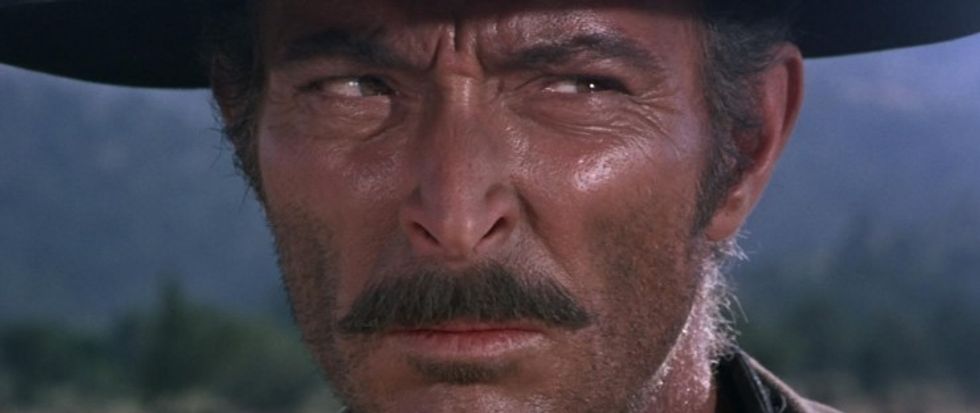
Summing Up The Western Genre in Film and TV
The Western genre is a popular category in both film and television that has been around for decades. It typically portrays life in the American West in the late 19th century, with its rugged landscapes, wild frontier towns, and characters who are often cowboys or gunslingers.
The Western genre typically features themes of justice, revenge, and redemption, as well as struggles for survival and conflict with Native Americans.
Let me know your favorite westerns below in the comments!
- How 'Unforgiven' Ended The Western Genre (For A Hot Minute) ›
- Sorry, the Superhero Genre Is Not Like the Western Genre ›
- Sorry, the Superhero Genre Is Not Like the Western Genre ›
- Genre type list ›
- What Are The Best Western Movies of All Time? | No Film School ›











